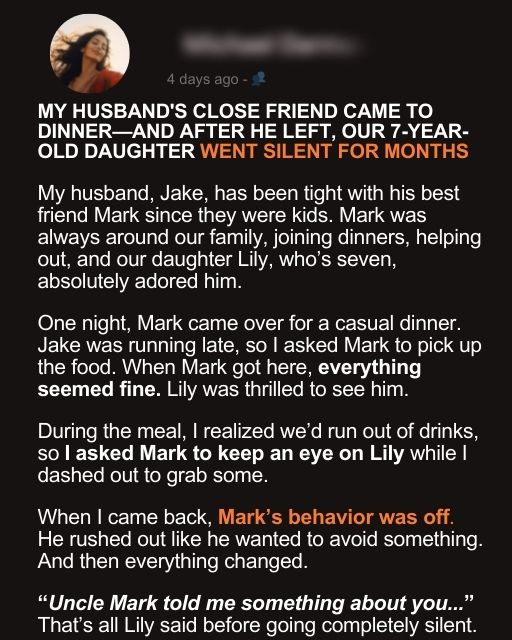Jake and Mark had been inseparable since childhood—more like brothers than friends. Mark was part of our family life, adored by our seven-year-old, Lily, who often chose “Uncle Mark” over her real uncles. One evening, Jake was late for dinner, so I asked Mark to grab takeout. During the meal, I stepped out briefly, leaving him with Lily. When I returned, he was jittery, rushed out, and Lily grew uncharacteristically silent. Days passed, then weeks. She stopped talking, drawing, even singing.
Doctors and therapists found no cause. Mark dodged calls. Jake defended him. My instincts screamed otherwise. A month later, I found Lily’s drawing: herself beside Mark, his speech bubble saying, Don’t tell. Ice filled my chest. Jake confronted him. Mark denied wrongdoing but admitted whispering to Lily that Jake had a secret—that he might leave us—and told her not to tell.
The damage was clear. Lily’s fragile trust had shattered. We cut Mark out. Jake confessed he sometimes felt trapped but not leaving, a painful honesty that gave us ground to rebuild. Therapy became our lifeline. Slowly, Lily thawed. One day she whispered, “You’re not leaving, right?” We all cried, promising again and again.
Mark’s patterns later caught up with him—fired for spreading lies at work. Pity replaced anger. A year on, Lily is herself again—singing, painting, wiser than before. We’ve learned words are never small. For a child, trust is glass: once cracked, it takes relentless love to mend.
